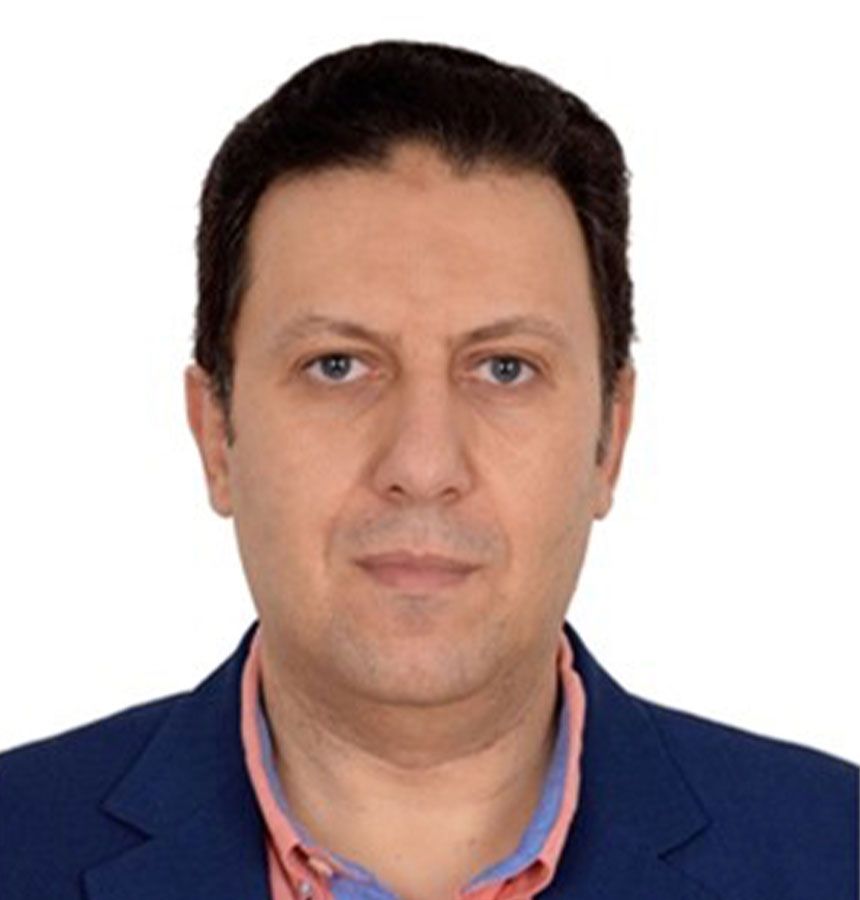About the course
The Aurifer GCC Tax Certificate is the first executive programme on taxation in the Gulf region and is accredited by the Dubai Legal Affairs Department (DLAD).
Brought by and endorsed by qualified professionals and academics in the field, the programme offers a comprehensive overview of tax systems in the GCC countries and the UAE in particular.
The Certificate delves into the essentials of direct and indirect taxation in GCC countries, including Corporate Tax, VAT, Excises, and Customs. It also features modules on key aspects of international taxation, with a specific focus on their practical application in the tax systems of the GCC countries and the UAE. The course also discusses the implementation and impact of the OECD Pillar Two (GloBE Rules) in UAE and GCC countries.
Who is the course for?
The Certificate is a career-boosting opportunity for GCC practitioners working in tax consulting firms or as in-house tax professionals, government officials, and tax enthusiasts who aspire to develop a career in the Gulf region or acquire an international profile.
Candidates need to have a Bachelor’s or Master’s in law, accounting, or business, plus a good command of English. Professionals without a degree qualification but with 1 to 4 years of proven experience in the tax field also qualify.
How You’re Taught
Course Format
The Certificate will be delivered through blended learning, beginning with a Keynote Conference followed by regular in-person and live-streamed sessions.
Curriculum
Students need to complete seven compulsory modules and up to two specialisation tracks to be eligible for the Certificate.
Teaching Schedule
The programme features 16 days of teaching between October – November, for a total of 16 classes and 48 hours. Classes are between 6:30 PM – 9:30 PM, and all classes will take place after work.
Teaching Schedule
Class | Date | Course | Lecturer(s) | Company / Profile |
0 | 3 October | Keynote Conference | During the Keynote Conference each lecturer will provide a brief overview of their course. | |
1 | 8 October | GCC VAT | Halil Erdem / Giorgio Beretta | Vice President of Tax for an International Bank in Dubai / University of Amsterdam |
2 | 10 October | GCC VAT | Halil Erdem / Giorgio Beretta | Vice President of Tax for an International Bank in Dubai / University of Amsterdam |
3 | 15 October | UAE Corporate Tax | Nirav Rajput | Aurifer |
4 | 17 October | UAE Corporate Tax | Nirav Rajput | Aurifer |
5 | 22 October | UAE Corporate Tax | Nirav Rajput | Aurifer |
6 | 24 October | GCC Excise | Maikel van der Knaap | Deloitte |
7 | 29 October | GCC Customs | Fernand Rutten | Deloitte |
8 | 31 October | GCC Customs | Fernand Rutten | Deloitte |
9 | 5 November | Domestic Tax Systems in the GCC | Hany El Naggar | WTS Dhruva Consultants |
10 | 7 November | Domestic Tax Systems in the GCC | Hany El Naggar | WTS Dhruva Consultants |
11 | 12 November | International Tax | Thomas Vanhee / David Russell | Aurifer / Outer Temple Chambers |
12 | 14 November | International Tax | Thomas Vanhee / David Russell | Aurifer / Outer Temple Chambers |
13 | 19 November | Transfer Pricing in the GCC | Safae Guennoun | The Tax Point |
14 | 21 November | Transfer Pricing in the GCC | Safae Guennoun | The Tax Point |
Specialisation Tracks
Class | Date | Course | Lecturer(s) | Company / Profile |
15 | 26 November | Pillar 2 Implementation in the GCC | Hanan Abboud | PwC Middle East |
16 | 28 November | UAE Free Zone Tax Regime | Nibale Hamdan / Aigerim Tyurebayeva | L’Oreal / EY |
*Classes are between 6:30 PM – 9:30 PM, and all classes will take place after work.
Modules
The introduction of Corporate Tax (CT) in the United Arab Emirates (UAE) as of 1 June 2023 has significantly impacted various economic sectors and businesses, including Free Zone entities. The UAE has prioritised creating CT policies conducive to business operations. However, the new UAE CT law brings nuances that require an in-depth analysis of the parties and transactions involved in each situation.
Our course delves into the intricacies of the UAE CT regime as outlined in the UAE CT legislation and guidance. The course includes both theoretical explanations and real-world applications for a broad spectrum of businesses in the UAE and internationally.
VAT (Value Added Tax) is a general broad-based consumption tax, presently adopted by nearly 175 countries worldwide. The GCC VAT course focuses on fundamentals of VAT in the Gulf Cooperation Countries (GCC). Participants receive training on key concepts of GCC VAT, such as taxable persons, taxable transactions, place of supply, zero-rating, and exemptions, including discussions on more general topics like VAT fraud and abuse of law. The course adopts a broader perspective on GCC VAT by comparing it with other VAT systems, with particular attention to the EU VAT system and the OECD International VAT/GST Guidelines.
Excise taxes are a tax levied on the consumption of goods. Excise tax rates are often relatively high and as such, are an effective way to discourage the consumption of specific goods for a variety of reasons, but most commonly for public health reasons, as well to generate tax revenue. The GCC introduced excise tax in 2015 through the Excise Tax Treaty, and since then, the excise tax has been implemented in multiple GCC member states. We will cover the fundamentals of the GCC excise tax.
Organisations in the Middle East engaged in global trade face a maze of complex import, export, and border security regulations. Therefore, customs compliance obligations and trade regulations must be carefully navigated to determine the customs duty (fiscal) burden and deal with the many non-fiscal trade matters to maintain compliance as well as pursue benefits of cost savings opportunities.
In this session, we will learn about the overall customs and global trade landscape and focus on the main three 'customs master data pillars' of tariff classification, origin, and customs valuation. We will discuss how these concepts can impact the customs (duty) implications in the cross border movements of goods.
Given recent developments, we will also touch upon customs audits, dispute processes, and non-fiscal trade control measures in the field of export controls and sanctions.
GCC countries implemented domestic tax regimes some years back, including corporate tax, capital gain tax, Zakat, withholding tax, etc. The course will focus on the main tax aspects in GCC and a comparable study to show the main differences and similarities.
Tax treaties constitute the backbone of international trade and aim to facilitate it. We cover the fundamental concepts of double tax treaties and show how the GCC tax treaty network impacts cross-border investments by both individuals and businesses. This includes favourable tax relief on income from employment, financial investments, real estate investments, and international businesses.
Transfer Pricing (TP) is a key concept in international taxation. It addresses important economic and tax considerations in relation to intercompany transactions between related parties. We will cover the fundamental concepts of TP as well as the key recognised OECD TP methodologies and how to implement them in TP documentation. Finally, the TP module will also provide an overview of how tax authorities in the GCC region have implemented the TP regulations.
Pillar 2 Implementation in the GCC
Pillar 2 is an OECD-led initiative that aims to ensure that large multinational enterprises (MNEs) pay a minimum tax on income arising in each jurisdiction where they operate. Also referred to as the “Global Anti-Base Erosion” or “GloBE” Rules, the Pillar Two solution provides for a new global minimum Effective Tax Rate (ETR) of 15% for certain MNEs, compounded with a Subject to Tax Rule (STTR) in case the minimum ETR is not reached.
This specialisation track illustrates the key concepts underpinning the Pillar Two initiative, analysing the main implications and challenges of its implementation in the UAE and other GCC countries.
UAE Free Zone Tax Regime
The UAE boasts a vibrant business community supported by an extensive network of Free Zones. The over 40 UAE Free Zones play a pivotal role in attracting foreign investment, fostering the nation’s economic growth, and diversifying its economy. In June 2023, the UAE ended its largely tax-free status by introducing a federal Corporate Tax at a 9% rate. The new Corporate Tax also applies to UAE Free Zones. However, the UAE Corporate Tax Law provides for a special tax regime for entities incorporated or operating in one or more of the UAE Free Zones.
This specialisation track illustrates the fundamentals of the UAE Free Zone Regime, discussing the concept of Qualifying Free Zone Persons and under which circumstances their activities can benefit from a 0% tax.
Each module consists of 9 or 6 hours of lectures, covering core knowledge about tax systems in the UAE, GCC and internationally.
Elective modules are taught over three hours, allowing participants to specialise in advanced topics relevant to tax professionals in the GCC and beyond.
Faculty
The Aurifer GCC Tax Certificate is designed to provide high-quality tax education. Training for each program module is led by experienced professionals who have gained extensive tax expertise in different fields in the Gulf region and internationally.
Co-Chairs

Thomas Vanhee
Founding Partner of Aurifer

Dr Pallavi Kishore
Head of Accounting and Finance, Middlesex University Dubai
Lecturers

Halil Erdem
Vice President of Tax for an International Bank in Dubai

David Russell
Barrister at Outer Temple Chambers

Giorgio Beretta
Assistant Professor at University of Amsterdam

Hany El Naggar
Associate Partner at WTS Dhruva Consultants

Safae Guennoun
Founder of TheTaxPoint

Maikel van der Knaap
Senior Manager at Deloitte

Fernand Rutten
Partner at Deloitte

Nirav Rajput
Partner at Aurifer

Nibale Hamdan
Tax Director at L’Oréal Middle East

Hanan Abboud
Partner at PwC Middle East

Chris Maycroft
Director at PwC Middle East
COST & PAYMENT OPTIONS
AED 12,000 for the full course
Single course registration avaialble for AED 300 per teaching hour*
Discounted fees for current MDX Dubai students and alumni*
Discounts available for corporate groups*
*Please contact MDX Dubai for further information



